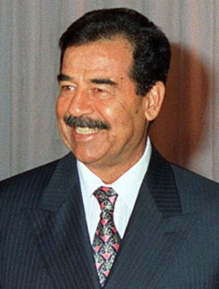
Saddam Hussein Abd al-Majid al-Tikriti was an Iraqi politician who served as the fifth president of Iraq from 16 July 1979 until 9 April 2003. A leading member of the revolutionary Arab Socialist Ba'ath Party, and later, the Baghdad-based Ba'ath Party and its regional organization, the Iraqi Ba'ath Party—which espoused Ba'athism, a mix of Arab nationalism and Arab socialism—Saddam played a key role in the 1968 coup that brought the party to power in Iraq.
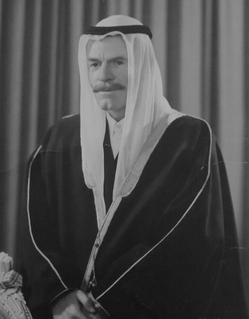
Izzat Ibrahim al-Douri was an Iraqi politician and Army Field Marshal. He served as Vice Chairman of the Iraqi Revolutionary Command Council until the 2003 U.S.-led invasion of Iraq and was regarded as the closest advisor and deputy under President Saddam Hussein. He led the Iraqi insurgent Naqshbandi Army.
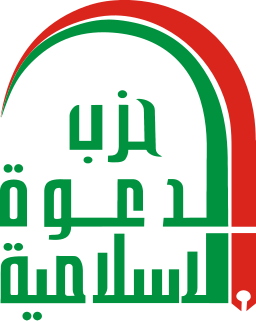
The Islamic Dawa Party, also known as the Islamic Call Party, is an Islamist political party in Iraq. Dawa and the Supreme Islamic Iraqi Council are two of the main parties in the religious-Shiite United Iraqi Alliance, which won a plurality of seats in both the provisional January 2005 Iraqi election and the longer-term December 2005 election. The party is led by Haider al-Abadi, who was the Prime Minister of Iraq from 8 September 2014 to 25 October 2018. The party backed the Iranian Revolution and also Ayatollah Ruhollah Khomeini during the Iran–Iraq War and the group still receives financial support from Tehran despite ideological differences with the Islamic Republic. The Party was known for its terrorist activities, which included one of the first suicide bombings, and may have included the 1983 Beirut barracks bombings.

Sayyid Ayatollah Muhammad Baqir al-Hakim, also known as Shaheed al-Mehraab, was a senior Iraqi Shia Islamic Scholar and the leader of the Supreme Council for Islamic Revolution in Iraq (SCIRI). Al-Hakim spent more than 20 years in exile in Iran and returned to Iraq on 12 May 2003. Al-Hakim was a contemporary of Ayatollah Khomeini, and The Guardian compared the two in terms of their times in exile and their support in their respective homelands. After his return to Iraq, al-Hakim's life was in danger because of his work to encourage Shiite resistance to Saddam Hussein and from a rivalry with Muqtada al-Sadr, the son of the late Ayatollah Mohammed Sadeq al-Sadr, who had himself been assassinated in Najaf in 1999. Al-Hakim was assassinated in a bomb attack in Najaf in 2003 when aged 63 years old. At least 75 others in the vicinity also died in the bombing.
The Iraqi Revolutionary Command Council was established after the military coup in 1968, and was the ultimate decision-making body in Iraq before the American-led invasion in 2003. It exercised both executive and legislative authority in the country, with the Chairman and Vice Chairman chosen by a two-thirds majority of the council. The Chairman was also then declared the President of Iraq and he was then allowed to select a Vice President. After Saddam Hussein became President of Iraq in 1979 the council was led by deputy chairman Izzat Ibrahim ad-Douri, deputy Prime Minister Tariq Aziz, and Taha Yassin Ramadan, who had known Saddam since the 1960s. The legislature was composed of the RCC, the National Assembly and a 50-member Kurdish Legislative Council which governed the country. During his presidency, Saddam was Chairman of the RCC and President of the Republic. Other members of the RCC included Salah Omar Al-Ali who held the position between 1968 and 1970, one of Saddam's half-brothers, Barzan Ibrahim al-Tikriti, Taha Yasin Ramadan, Adnan Khairallah, Sa'adoun Shaker Mahmoud, Tariq Aziz Isa, Hasan Ali Nassar al-Namiri, Naim Hamid Haddad and Taha Mohieddin Maruf. It was officially dissolved in 2003 by Paul Bremer per Order Number 2 of the Coalition Provisional Authority.

An insurgency began in Iraq after the 2003 US-led invasion, and lasted throughout the ensuing Iraq War which lasted from 2003 until 2011. The first phase of the insurgency began shortly after the 2003 invasion and prior to the establishment of the new Iraqi government. From around 2004 to May 2007, the insurgency primarily targeted the Multi-National Force – Iraq. Latterly Iraqi security forces were also targeted, as they were seen by Iraqi insurgents as collaborators with the coalition.

Al-Awda is a Arab socialist organization in Iraq. Al-Awda's name began appearing in Iraq in June 2003 in anti-occupation graffiti and leaflets in Baghdad and to the north and west of the capital. The group is led by Mohammed Younis al-Ahmed, who is based in Syria.

Operation Bayonet Lightning was a military operation during the early stages of the Iraq War, that was held to capture weapons, materials, and people who posed a threat against coalition forces. The joint operation between Iraq and the United States, lasted approximately 16 hours, and was conducted on 2 December 2003. 1,200 soldiers from the 173rd Airborne Brigade, the 4th Infantry Division, and Iraqi military participated. Operation Bayonet Lightning was concentrated on Al Hawija, Iraq, and the village of Rashad, Iraq, sixty kilometers, or thirty-seven miles, to the south of Kirkuk, Iraq.
Jeish Muhammad is an Iraqi militant group that is both politically and religiously motivated. The politically motivated faction within JM is primarily made up of former Ba'athist members mainly from the Sunni region. Many who enjoyed special status during the leadership of Saddam Hussein were from Tikrit, which is in turn within an area of Iraq where the Arab population is mostly Sunni. People who generally hold the ex-vice-president, Izzat Ibrahim ad-Douri, in exceptionally high esteem were members of the security, intelligence and police forces from the previous government.
Sectarian violence in Iraq refers to the violence that developed as a result of rising sectarian tensions between the different religious and ethnic groups of Iraq, most notably the conflict between the Shi'i Muslim majority and the Sunni Muslim minority within the country. With the creation of a modern nation-state, sectarian tensions arose slowly and eventually developed into recent violent conflicts such as the War in Iraq (2013–2017) and the Iraqi Civil War (2006–2008).
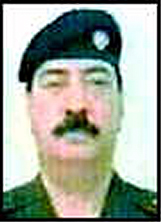
Mohammed Younis al-Ahmed al-Muwali aka Khadr al-Sabahi is a former senior member of the Iraqi Ba'ath Party. Ahmed currently has a million dollar bounty placed on his head as one of Iraq's most wanted men accused of funding and leading resistance operations. He is the leader of al-Awda; an underground Ba'athist movement in Iraq.
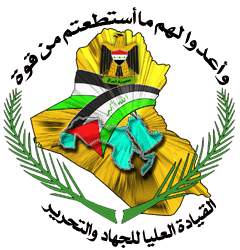
The Supreme Command for Jihad and Liberation is an Iraqi front comprising some 23 militia groups formed in October 2007 and led by former Iraqi vice president and deputy chairman of the Revolutionary Command Council Izzat Ibrahim al-Douri. The name is also often used to refer to the largest militia in the front, the Army of the Men of the Naqshbandi Order, which is commanded by Douri himself.
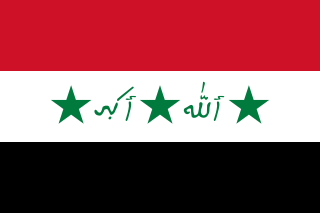
Ba'athist Iraq, formally the Iraqi Republic until 6 January 1992 and the Republic of Iraq thereafter, covers the national history of Iraq between 1968 and 2003 under the rule of the Arab Socialist Ba'ath Party. This period began with high economic growth and soaring prosperity, but ended with Iraq facing social, political, and economic stagnation. The average annual income decreased both because of external factors and the internal policies of the Iraqi government.
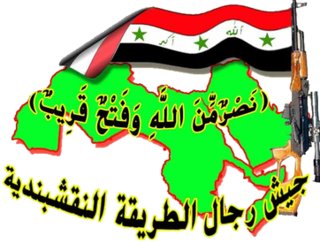
The Army of the Men of the Naqshbandi Order, also called the Naqshbandi Army, is one of a number of underground Ba'athist and Sufi militant insurgency groups in Iraq. Media frequently refers to the group by the initials JRTN, a romanization of its Arabic name. Supreme Command for Jihad and Liberation, technically the name of the umbrella organisation to which JRTN belongs, is also often used to refer to JRTN specifically.

The Arab Socialist Ba'ath Party, also referred to as the pro-Iraqi Ba'ath movement, is a Ba'athist political party which was headquartered in Baghdad, Iraq until 2003. It is one of two parties which emerged from the 1966 split of the original Ba'ath Party.

The Jordanian Arab Socialist Ba'ath Party (JASBP), previously known as the Arab Socialist Ba'ath Party – Jordan Region is a political party in Jordan. It is the Jordanian regional branch of the Iraqi-led Ba'ath Party.
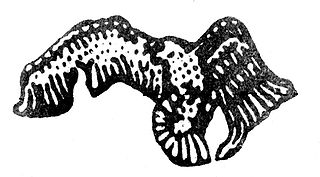
The Arab Socialist Ba'ath Party of Algeria, is a political party in Algeria. It is the Algerian regional branch of the Iraqi-led Ba'ath Party. It is led by Ahmed Choutri.

The Arab Socialist Ba'ath Party – Iraq Region, officially the Iraqi Regional Branch, is an Iraqi Ba'athist political party founded in 1951 by Fuad al-Rikabi. It was the Iraqi regional branch of the original Ba'ath Party before changing its allegiance to the Iraqi-dominated Ba'ath movement following the 1966 split within the original party. The party was officially banned following the American invasion of Iraq in 2003, but despite this it still continues to function underground.
The Tulfah family was the family of Saddam Hussein of Ba'athist Iraq who ruled from 1979 to 2003 and established a single party authoritarian government under the control of the Ba'ath Party until the invasion by US/UK forces in 2003.
The 1979–1980 Shia uprising in Iraq, also known as the First Sadr Uprising, took place as a followup to the Iranian Revolution (1978–1979) in neighbouring Iran, as the Shia Iraqi clerics vowed to overthrow Ba'athist Iraq, dominated by (secular) Sunni Muslims - specifically the Saddam Hussein family. Saddam and his deputies believed that the riots had been inspired by the Iranian Revolution and instigated by Iran's government. The riots erupted in May 1979 and escalated in June - leading to thousands tortured and killed in Najaf. The uprising subsided with the April 1980 arrest of the leader of Shia Iraqis Muhammad Baqir al-Sadr and his subsequent execution.
















